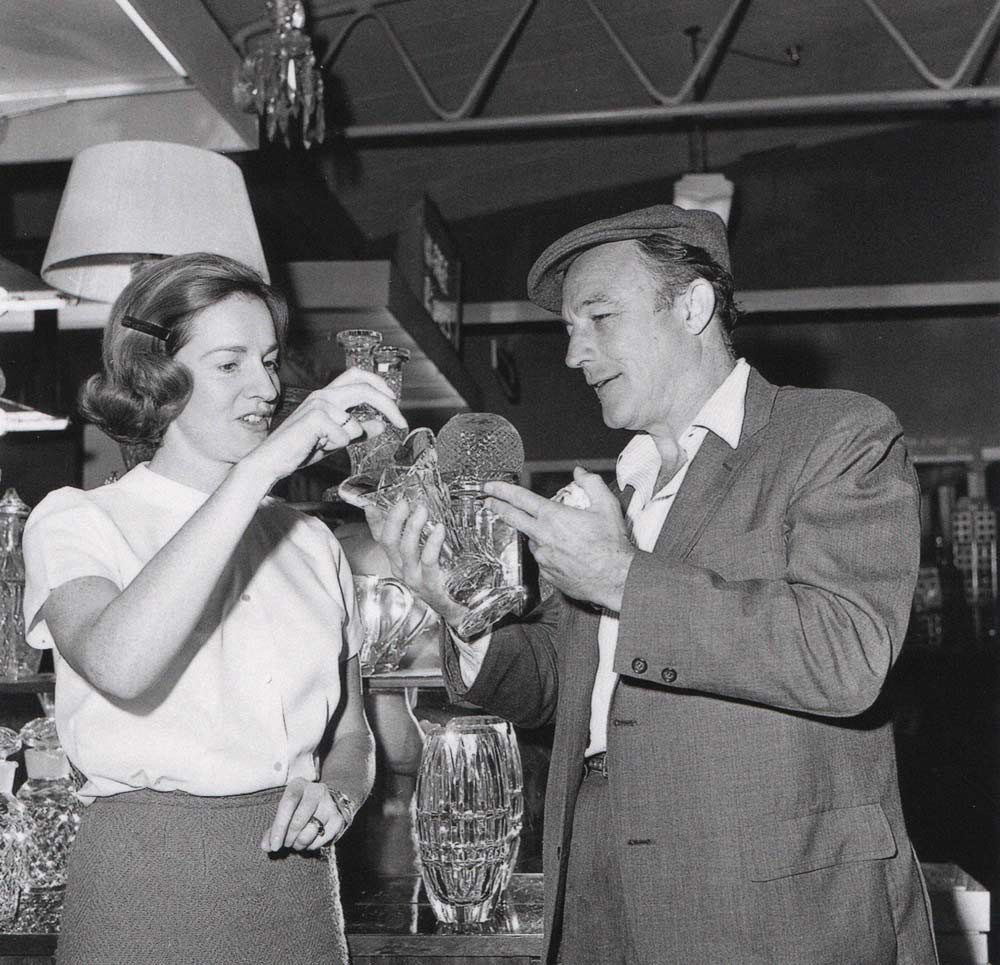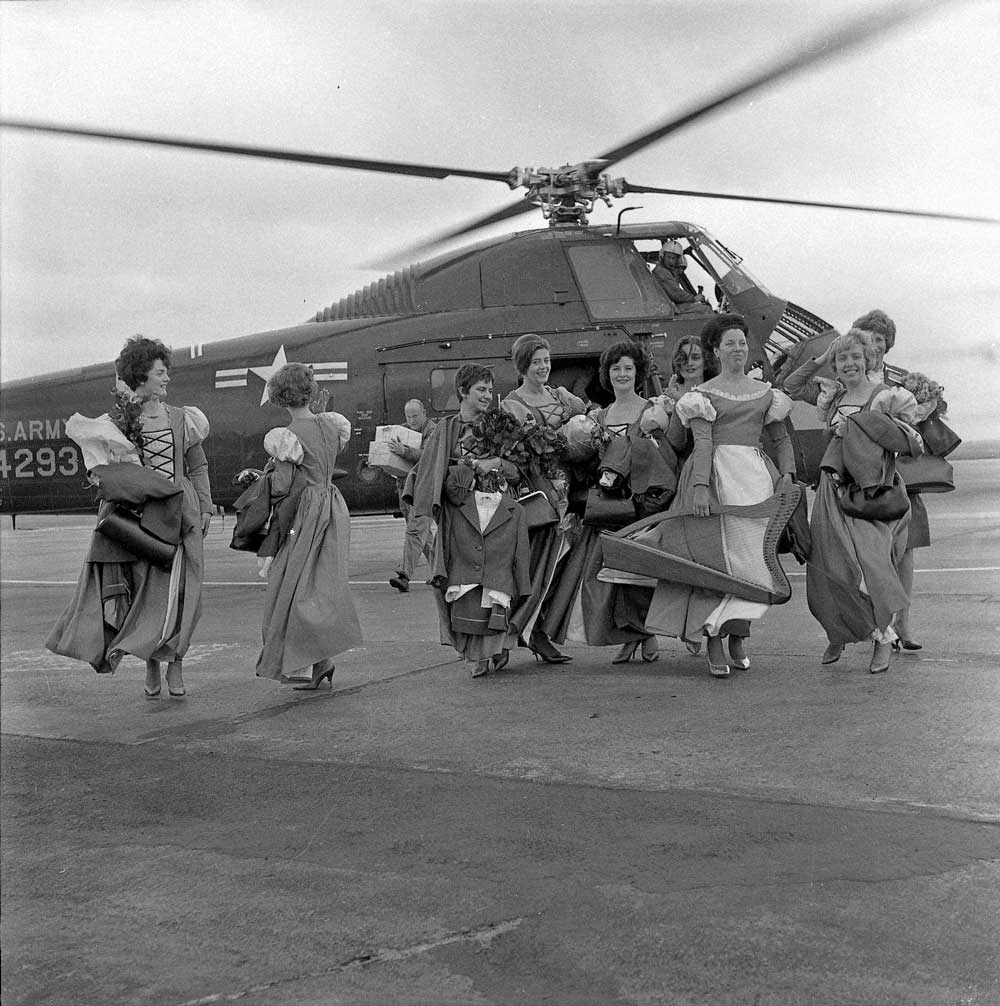Ivor Kenny on Brendan O’Regan’s love of the Irish Language, achievements, characteristics. Extracts from an interview by Ivor Kenny with Cian O’Carroll: June 22nd 2015
I first met with Brendan in 1960 when I was head of management development in the Irish Management Institute (IMI), and then later as IMI Director General. Subsequently, my main contact with him was after I was made chairman of Gaeltarra Éireann as it then was, and then he set up Gníomh don Ghaeltacht which was launched on the eleventh of January 1972.
Gaeltarra Éireann was given additional powers when I was made chairman and there was a new board and the headquarters of Gaeltarra Éireann was in a dreadful old building in near Heuston train station in Dublin. The first thing I did was to find a chief executive, Cathal McGowan, and I said ‘let’s get the hell out of here’ and we moved to a lovely new headquarters, between Barna and Spiddal, opposite the new hotel there.
So, as it went on, I became more and more disenchanted because the concept of Gaeltarra Éireann was that what it was fundamentally about was the preservation and encouragement of Irish as a vernacular which was only in the Gaeltachtí and the Gaeltachtí were visibly shrinking before our eyes. The idea about was that if people were to stay in the Gaeltacht they had to have employment, so we built a few factories, some of which lasted and some of which didn’t. I remember we were building a beautiful factory in Gweedore, I suppose it’s still there, probably not and I was talking to a fella, I could barely understand his Ulster Irish, and I said ‘why are you looking so morose’, and he said ‘ni maraigh sé’, (‘it won’t last’) and he was right, it didn’t. My minister at the time was George Colley, who was also Minister for Finance and there was one lovely incident. He came on a solemn visit to the Gaeltachtí and went into the factory in Spiddal, and as he arrived a nice-looking Gaeltacht girl was in reception chewing gum behind a desk and listening to Radio Luxembourg blaring out. He went in and in his most refined Christian Brothers Irish said, ‘go mbeannaí Dia dhuit’ (may God bless you) and she looked up at him with the gum in her mouth and said ‘hello’ and that epitomised what we were doing – we were up against huge things.
Brendan got a bee in his bonnet about Irish, he didn’t speak Irish and he kind of half learnt it and he decided that this was one of the badges of our nationalism and that it should be fostered and it wasn’t being fostered. So, Brendan was the originator of the Gniomh don Ghaeltacht report and you could say ‘oh that’s a very good report’, he drove it. He first looked at Gaeltarra and I was chairman of Gaeltarra then because that made me chairman of this committee that drafted the report. So we did a lovely report- of course it didn’t work and names were changed because the forces against the resurrection of Irish in the Gaeltachtí were enormous and have speeded up now with industrialisation.
I know that Telefís na Gaeilge and Radio na Gaeltactha are separate – they’re, I suppose, a consequence of it and that’s a positive obviously. I watch all the football matches and it is lovely to hear the commentary in Irish – that’s a great development.
The report, Gníomh don Ghaeltacht, was written by Paul Quigley who was my first boss in the IMI. I was in an unenviable position in that I wrote the report, with an awful lot of help and I was the chairman of the committee and Paul was working for it, he was chief executive of SFADCO then – which Brendan was chairman, so it was a funny kind of relationship. We used to meet in the IMI in Dublin –it was a very good, comprehensive report and it achieved zero – I think all it achieved was to change the title of Gaeltarra to Udarás na Gaeltachta, then the elected committee. I remember the secretary general of Roinn na Gaeltactha was absolutely dead against it, against elected members and he was dead right, he said it would turn into Fianna Fáil and Fine Gael – and it is still that way, I think.
Eventually I went into George Colley and it was at election time, a lovely unfortunate choice on my part, and I said ‘aire tá mise ag eirí as’ (‘Minister I’m retiring’). He shot up and went over to a coffee table and I told him, ‘ní creidim ins an rud seo’ (‘I don’t believe in this thing’) and that kind of shook him. And I didn’t because as I said the language of business in the Gaeltachtí was always English and the dog was always addressed in English, there is some symbolism in that. English, the language of business almost universally- and the idea was that if you brought business, ‘Tionscail’ into the Gaeltacht that there would be jobs for everybody and they would all continue to speak Irish and – incidentally the board meetings then were largely held in English because there was one member from Donegal whose name I have forgotten, who didn’t speak any Irish, so in deference to him we had to speak English. So, ah the whole thing was a cod.
People would smile a bit and particularly they smiled when Brendan got involved with Irish because I knew how complicated it was – the task he had taken on he did not understand. It was swayed by his sense of patriotism and like people would refer to it as ‘the latest bee in Brendan’s bonnet’
Brendan’s Achievements
His major achievement was the duty-free airport in Shannon, there is just no question of that and it was the first in the world wasn’t it? And that was him, I mean it became possible. I remember my first visit down there and went through what I call the shop, and it was luxurious as was the airport and the food.
That whole thing of castle banquets and everything like that, he did that extremely well. – and the fact that it is still running as well as ever is the greatest possible sign of his efficacy.
Brendan’s Characteristics
Of Brendan’s characteristics, the first one was optimism. He really was an incredible optimist and not I would say in a naive sense, I mean he was born and reared as a businessman, he ran a hotel and so he wasn’t naïve. One of the characteristics that would have persuaded the politicians was his optimism, his immense and he would have inspired even cold-blooded politicians with the fact that to him everything was possible.
He was a leader – he certainly was a leader and sometimes you know, people would find themselves doing things that they didn’t want to do. Paul Quigley didn’t want to write that report at all, because he didn’t believe in it and I didn’t believe in it as chairman.
One of the things about him, he was a patriot – he loved Ireland. The house he had on the banks of the Shannon – it was in a beautiful spot, I sailed into it in the Sadie R, my own cruiser and had a hell of a job getting out – I met him and his wife there and Maureen and I met him again. He was a marvellous host and a stylish host and he had great style. The things he touched were stylish and it wasn’t bacon and cabbage.
He deeply believed that we as Irish could deliver every bit as well as people from the USA in particular. It wasn’t a superficial thing and God, he didn’t have an inferiority complex!
The one thing he did inspire was respect – and part of that is that you wouldn’t trifle with him – not that he didn’t have a sense of humour. I can remember his smile was all enveloping, he had enormous charm, not in a sort of frivolous way, or superficial way, he was a great man.
He wouldn’t have had a sense of humour about himself, I mean there were things that he held very dear and you know would keep off. Gosh I remember great laughs in his company – you see Dev was around at that stage and I mean he really didn’t accept Dev – but he had to tolerate him because he wanted his way with him. I would say that he would be very wary of party politics.
He was a Catholic of his time, he would go to Mass and say his prayers and so on and I don’t think I ever heard a bad word about him.
And you know, when I look back, I think well of him. I hope somebody thinks well of me when I die. I’m eighty-five now.
Galwayman Ivor Kenny was Director General of the Irish Management Institute (IMI) from 1963 to 1983. He then became senior research fellow at University College Dublin and authored thirteen books focusing on Irish business leaders and the role of an enterprise culture in creating economic development. An interview he conducted with Brendan O’Regan in December 1986 forms a chapter in his book ‘In Good Company – Conversations with Irish Leaders’. He served as a board member of several public companies and state boards and was Chairman of Gaeltarra Eireann. In this latter capacity he later recalled how O’Regan persuaded him to became chairman of a Comhairle na Gaeilge working party: ‘I was hijacked by Brendan O’Regan who had developed a burning concern for the language’

